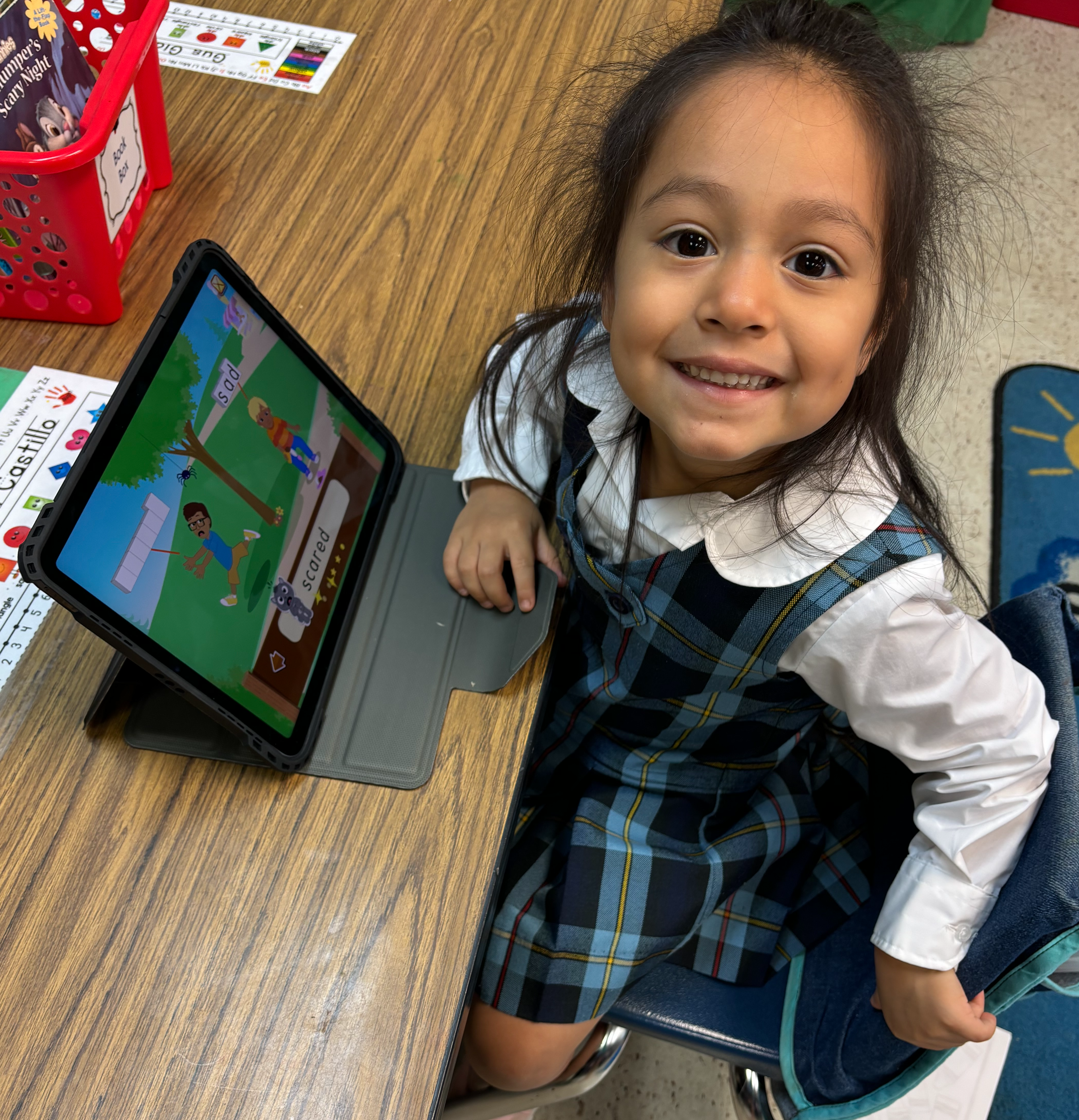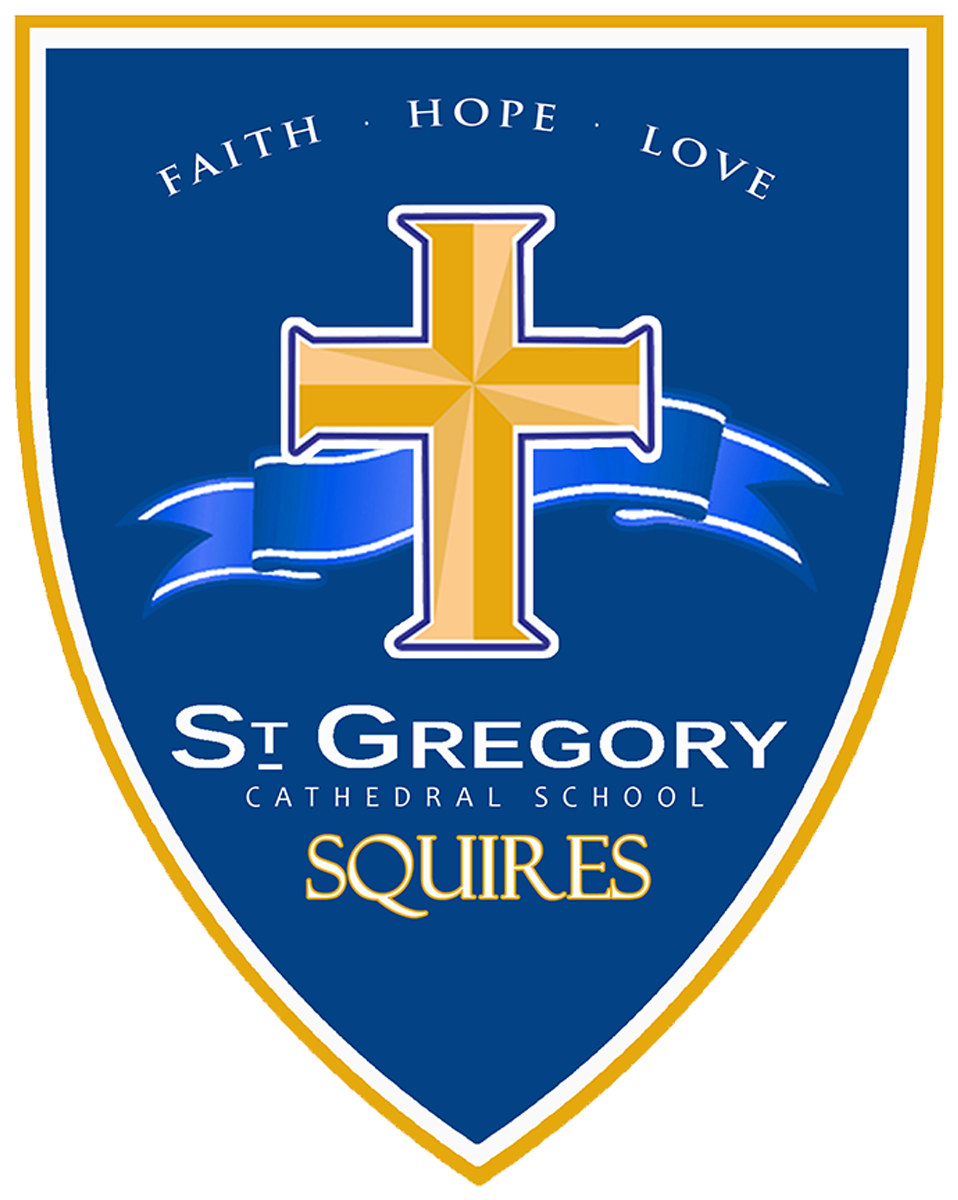
Religion
Addresses the school’s primary goal of fulfilling the educational ministry of the Catholic Church and is integrated in all instruction. The curricula adhere to the 15 goals set forth by the Diocese of Tyler and draw from the National Catholic Education Association (NCEA) guidance program (Faith, Family and Friends) and the Child Lures Prevention program. The child-centered weekly liturgy and Christian service are hallmarks of the faith community.
English Language Arts
Curricula derive from national standards which include creative thinking, print and phonological awareness, decoding, vocabulary, comprehension, fluency, literary concepts, readers’ theatre, poetry, written expression, graphic organizers and higher order thinking skills. The curriculum is enhanced with units of study such as Ancient Egypt, King Arthur, Greek Mythology, Fairy Tales, Nursery Rhymes, and Shakespeare.
Mathematics
Follows national standards with manipulative-based curricula that focus on numbers and operations, algebra, geometry, measurement, data analysis, probability, and problem-solving. By fifth grade, students complete a sixth-grade curriculum and textbook, as they prepare for Algebra I. Inductive and Deductive Reasoning are woven into the curriculum with logic problems and higher order thinking skills. St. Gregory consistently earns exemplary marks in testing and competition in math.
Science
Follows national standards for inquiry instruction and scientific methods. At least 40 percent of instruction is devoted to demonstration and experimentation, often taking place in the state-of-the-art science laboratory. Grades 1-5 utilize online Science textbooks accessed through individually assigned Chromebooks.
Social Studies
Links past, present and future with curricula that cultivate an integrated approach to geography, societal structures and cultural experiences which includes field trips. Texas History includes a trip to the East Texas Oil Museum. The Civil War comes alive with the depiction of life-size soldiers created by the students and the planting and harvesting of cabbage and onions to cook a stew, reminiscent of the meals eaten by those at war.
Action Based Learning
Action Based Learning (ABL) is based on kinesthetic teaching strategies that teach specific academic concepts in a teacher-friendly, time efficient, fun way that has proven results for a positive learning experience. It supports the link of movement and physical activity to increase academic performance.
